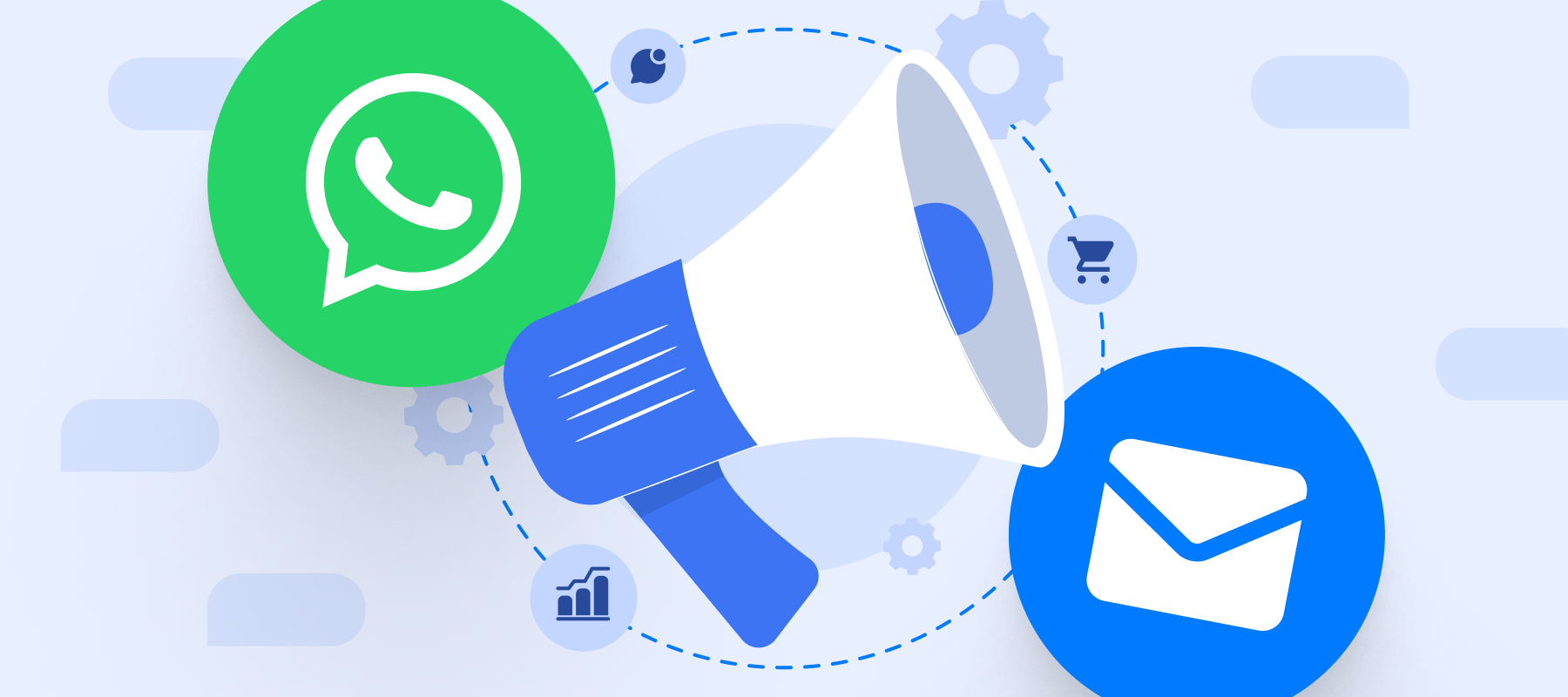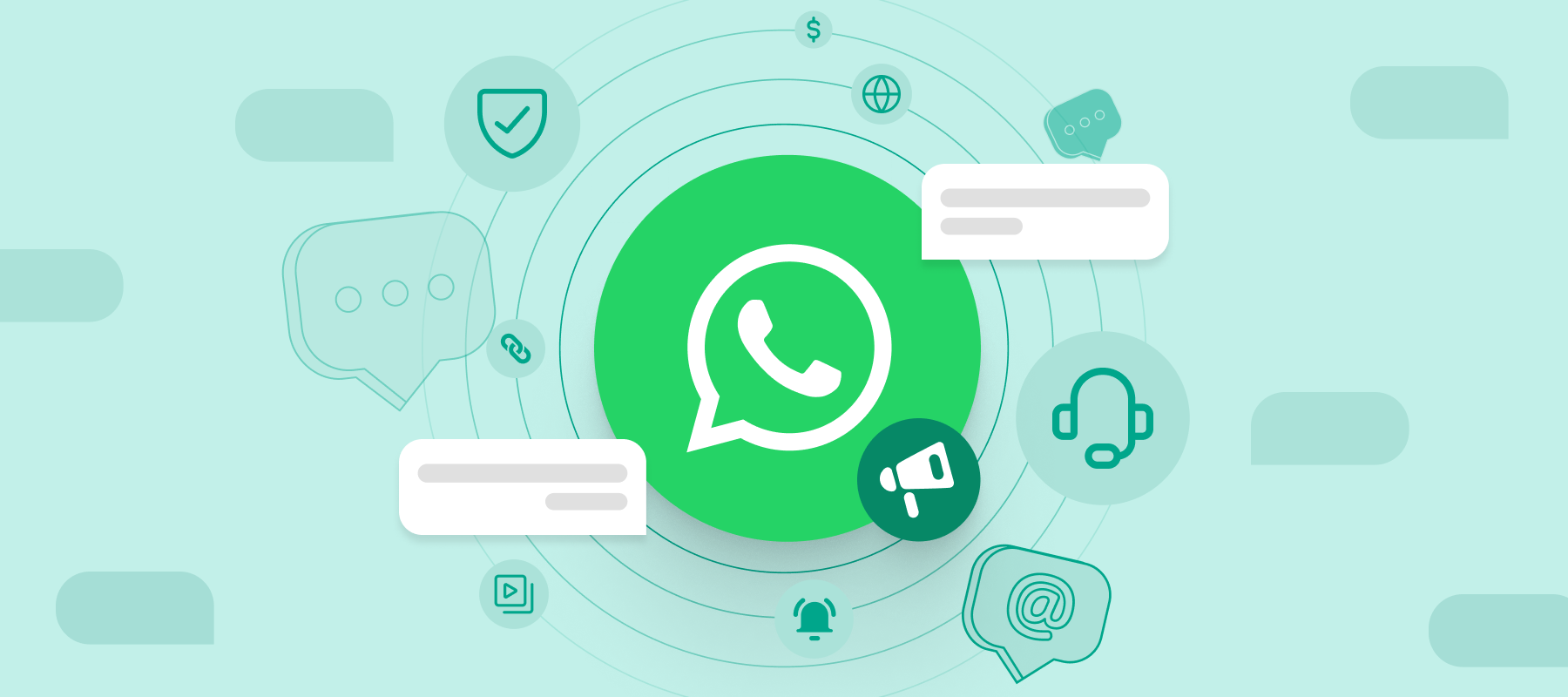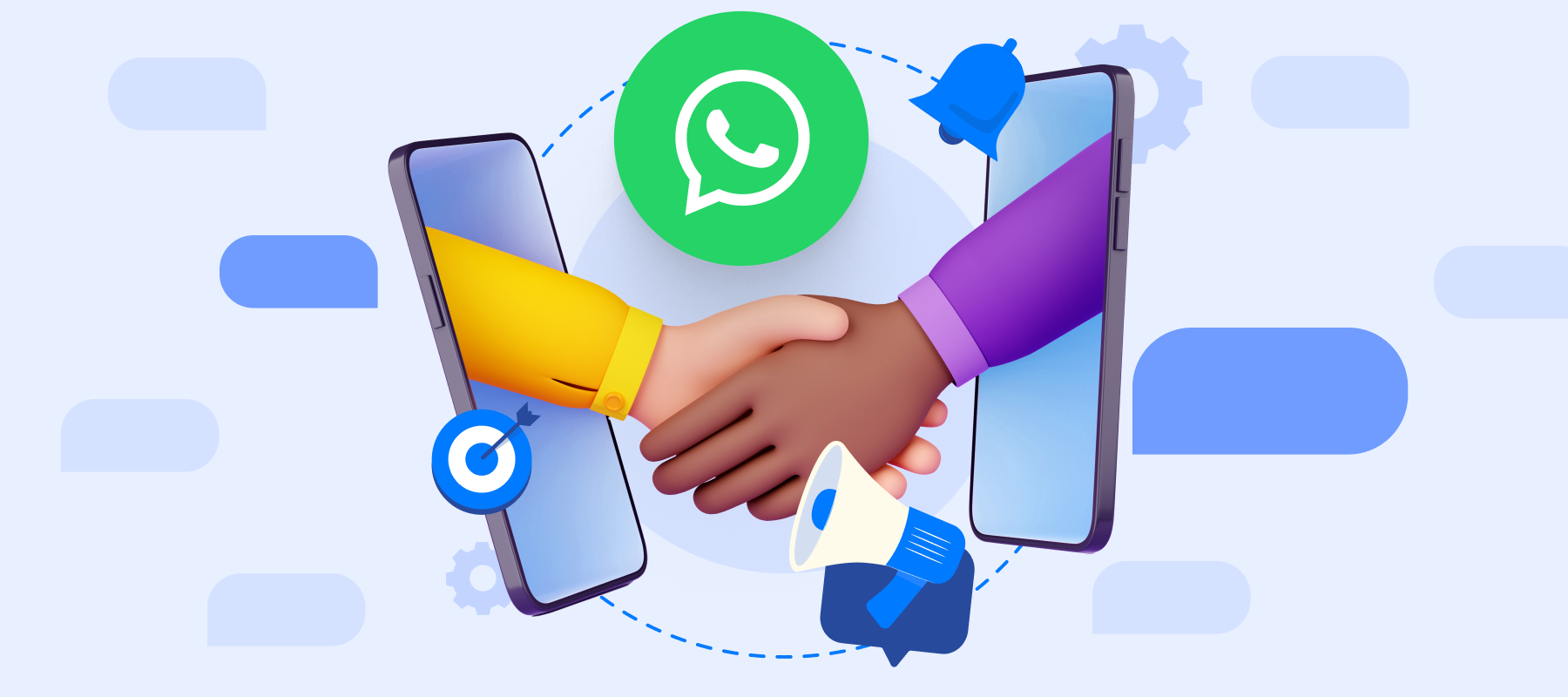Email has been around for a while and is a proven effective channel for marketing. But in the more recent times, WhatsApp Marketing has been picking up at an almost equal pace, becoming a must-have for many businesses.
Now while each of these channels has its strengths and weaknesses, businesses may often have to choose getting started with one.
In this post, we do a detailed comparison between WhatsApp and email.
Email marketing [EXPLAINED]
Email marketing can be defined as a digital marketing strategy where emails are used to share tailored, one-to-many promotional messages to a list of subscribers. It is a quick and cost-effective way to reach new customers and share personalized content such as newsletters, product launch alerts, guides etc.
Email Marketing Pros:
1. Emails have a wide reach and are one of the most accessible digital communication channels in the world.
2. Emails are cost-effective compared to other marketing channels.
3. Email marketing is scalable and is suited for campaigns of all sizes.
4. By adding attachments such as images or videos, you can make your messages feel on-brand and engaging.
5. The platform is well-suited for sending highly targeted and personalized messages.
Email Marketing Cons:
1. Marketing content sent via emails has a high chance of ending up in recipients’ spam folders.
2. Emails often compete with other messages in overcrowded inboxes for the recipients’ attention.
3. There is a need to make emails highly creative for them to catch the readers’ attention and thus require a lot of time and effort when being designed.
WhatsApp Marketing [EXPLAINED]
WhatsApp marketing involves using the WhatsApp platform to communicate with customers, share updates, and promote products or services. Businesses can use WhatsApp to send personalized messages, notifications, or updates, automate responses with chatbots, utilize interactive templates, catalogs, and more, making it a highly versatile channel.
WhatsApp Marketing Pros:
1. WhatsApp comes with end-to-end encryption meaning that it ensures security and data privacy to users.
2. Instant messaging lets you provide real-time customer support, quick responses, and faster issue resolution.
3. WhatsApp is interactive and engaging, allowing for more creative interactions with GIFs, emojis, audio, video, etc.
4. You can set up automated responses, quick replies, or chatbot integration to seamlessly handle frequently asked questions.
5. WhatsApp can help improve conversion and reduce cart abandonment as customers are more likely to respond to your marketing messages on WhatsApp than other channels.
WhatsApp Marketing Cons:
1. There is only a 24-hour window to respond to customers who have contacted you.
2. Companies have to comply with WhatsApp’s strict guidelines and policies.
Email vs WhatsApp marketing campaigns in 2025
Now that we have looked at both WhatsApp and email marketing campaigns, let’s compare them based on the following factors:
Reach and open rates
As of 2024, an estimated 4.6 billion people use email, whereas the number of active WhatsApp users is around 2.95 billion.
However, WhatsApp has a significantly higher open rate of 98% owing to its quick and personal nature, compared to email’s 21.3%, making WhatsApp the ideal marketing channel in terms of reach.
Engagement and interaction
WhatsApp offers more diverse and interactive message types that can be utilized for different purposes. From interactive messages with quick reply buttons or CTAs to diverse notification templates, to the possibility for automation and chatbot integration, WhatsApp offers a lot of flexibility in how you engage and interact with customers.
Email on the other hand is non-interactive and customer engagement is often low due to its static nature. Emails can be effective in engaging existing customers with in-depth long-form content and offer the ability to craft messages with images, links, and attachments.
However, WhatsApp has better multimedia-sharing capabilities, supporting easy sharing of content in various formats such as GIFs, video, voice messages, audio, stickers, etc. thus offering more creative ways to engage audiences.
Cost and ROI
Email is known to be one of the most affordable and cost-effective marketing channels out there. WhatsApp can have varying costs based on conversation types but is a much more cost-efficient communication platform.
For a well-executed email marketing campaign, the return on investment can average around $36 for every dollar spent, which is impressive. WhatsApp however shows an even better average ROI that can range between $90 to $130 per dollar spent, showcasing the growing significance and effectiveness of instant messaging.
Choosing the right channel for your business
Both email and WhatsApp marketing have their own different perks and purposes, making both of them viable and effective marketing platforms.
When to use email marketing
Email marketing is perfect for sending out newsletters and updates to customers or for nurturing new leads through email sequences. You can also share emails at scale to promote new products/services to a larger audience. Email’s flexibility makes it also a suitable channel for sharing in-depth educational content to engage your audiences.
When to use WhatsApp marketing
WhatsApp marketing being swifter, and personal, is perfect for providing immediate customer support as well as for sharing highly personalized and engaging offers, reminders, and updates. WhatsApp can be used to engage customers in real-time conversations, which helps in nurturing leads with a more hands-on approach while building stronger customer relationships.
Considering how the strengths of each channel have their purposes, we recommend using both email and WhatsApp marketing strategies in tandem. But in recent times, WhatsApp has been favored by many businesses for these reasons:
1. The conversational nature of WhatsApp, along with its dynamic and interactive features.
2. Makes for personalized and responsive communication.
3. In-app purchase features are facilitated by other features like catalogs, WhatsApp storefronts, and WhatsApp Pay.
Conclusion
Considering how beneficial email and WhatsApp integration can be for your overall marketing strategy, you will need a solution that will work with your emails while allowing you to set up compelling WhatsApp marketing campaigns.
And that is precisely what Interakt offers.







